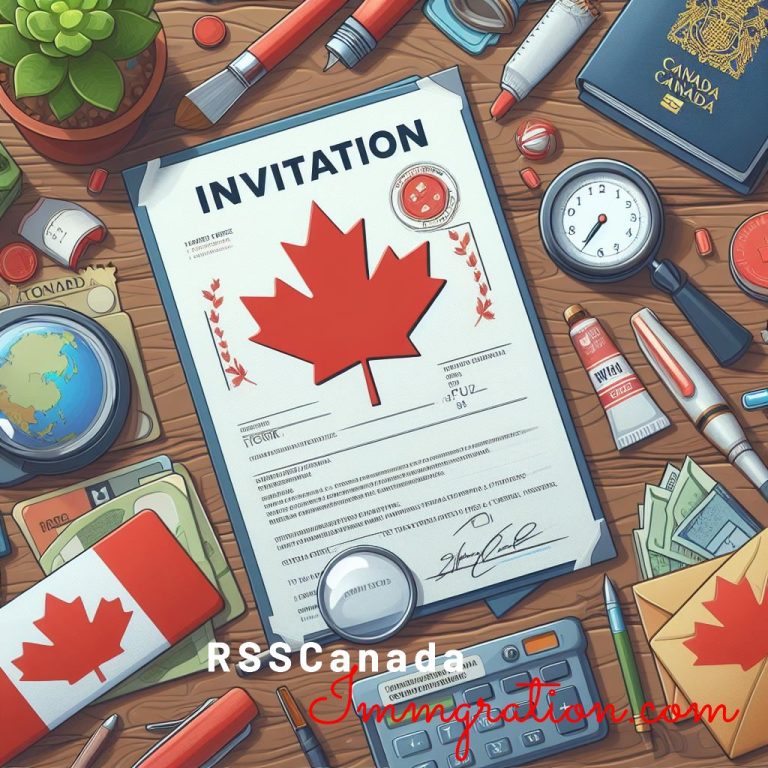How to Improve Your CRS Score for Express Entry
Understanding the Comprehensive Ranking System (CRS)
The Comprehensive Ranking System (CRS) plays a crucial role for individuals interested in immigrating to Canada through programs like Express Entry or the Provincial Nominee Program. With an increasing number of applicants competing for immigration, the minimum CRS scores for these programs are also on the rise. In order to maximize their chances of qualifying for permanent residency (PR), applicants must have a clear understanding of the factors that determine their CRS score and how to improve it.

The key factors that influence a candidate’s CRS score include age, education, language skills, Canadian work experience, skill transferability, and spouse or common-law partner factors.
Additionally, applicants can earn additional points through factors such as Canadian education, proficiency in a second official language, provincial nomination, a valid employment offer, and having a sibling living in Canada.
The Canadian government has provided a CRS score calculator to help applicants estimate their score and assess whether they meet the requirements for PR. It is important to note that the CRS cutoff can vary with each draw, and there is no definitive answer to what constitutes a good CRS score.
However, applicants can employ various strategies to improve their scores and increase their chances of being invited to apply for PR.
Increasing CRS Score While in the Express Entry Pool
Entering the Express Entry pool is the beginning of a candidate’s journey to obtaining Canadian permanent residence. While applicants already working in Canada or those with high qualifications have a higher chance of receiving invitations, candidates outside Canada should not overlook the opportunity to submit an application and work towards improving their qualifications.
The validity period for profiles within the Express Entry pool is 12 months. Simply waiting for an Invitation to Apply (ITA) may not be the most effective strategy for borderline candidates. It is crucial to consider strategies that can boost the CRS score while in the pool.
Strategies to Improve CRS Score
To improve their CRS scores, applicants can consider the following strategies:
- Using the CRS Score Calculator: Applicants can utilize the CRS score calculator provided by the government to understand their current score and identify areas for improvement. This tool helps candidates assess their eligibility for PR and provides insights on which factors have a greater impact on their score.
- Considered Strategies for Score Improvement: Applicants can adopt several strategies to enhance their CRS score. These include obtaining a job offer from a Canadian employer, securing a provincial nomination, selecting the principal applicant wisely, retaking language tests to improve proficiency, becoming proficient in a second language, getting foreign qualifications assessed, studying or working in Canada, gathering more education credentials from their home country, and maximizing points for foreign work experience.
Ways to Boost the CRS Score While in the Pool
There are several strategies that candidates can employ to boost their CRS score while in the Express Entry pool:
Improve Language Skills
Language is a significant aspect of the CRS (Comprehensive Ranking System), with the potential to contribute up to 310 points when combined with other factors, such as post-secondary education. This total can increase even further, up to 320 points, for applicants who are married or in a common-law relationship.
One advantage of language is that it presents opportunities for score improvement. Meeting the minimum language requirements, set at CLB 7 (Canadian Language Benchmark), is sufficient for the Federal Skilled Worker program.
However, additional points can be earned by increasing scores in each language ability, up to a maximum of CLB 10.
Moreover, language proficiency is beneficial across multiple sections of the CRS, including:
- Human capital factors,
- Spousal factors (for married or common-law applicants),
- Skill-transferability combinations, and additional factors.
The table below illustrates how combining language with another factor, such as education, can contribute up to 50 points.
| Educational Level | CRS points earned |
| Completion of secondary school | 0 |
| Possession of a post-secondary program credential of at least one year First language proficiency at CLB 7 or higher in all abilities, with at least one ability below CLB 9 required | 13 |
| Possession of a post-secondary program credential of at least one year First language proficiency at CLB 9 or higher in all abilities | 25 |
| Possession of two or more post-secondary program credentials, with at least one being at least three years in length, First language proficiency at CLB 7 or higher in all abilities, with at least one ability below CLB 9 required | 25 |
| Possession of two or more post-secondary program credentials, with at least one being at least three years in length First language proficiency at CLB 9 or higher in all abilities | 50 |
Conversely, if one ability falls below CLB 9, the maximum points cannot be achieved. However, even a slight improvement in a single ability can result in substantial point gains..

In order to receive the full 50 points, a CLB score of 9 or higher must be attained in all four language abilities: reading, speaking, writing, and listening.
On the other hand, enhancing proficiency in just one area can result in a significant increase in points. Here is an example case:
Eric, who is currently 29 years old, possesses a Master’s degree and three years of professional experience abroad. Additionally, he achieved an overall score of 7 in each language ability on the IELTS exam. Based on these credentials, Eric’s Comprehensive Ranking System (CRS) score is currently 405.
However, if Eric were to retake the IELTS test and improve his listening score from 7 to 8, his CRS score would significantly increase to 469. This improvement in his listening ability would result in a gain of 25 points in two skill-transferability combinations, allowing him to earn a total of 50 points. Additionally, it would also result in an increase of 14 points in his human capital language score.
In summary, by enhancing his listening abilities, Eric would not only boost his CRS score but also improve his chances of being selected for immigration to Canada.
Boost Education
Under the Express Entry system, education can contribute up to 200 Comprehensive Ranking System (CRS) points if it was acquired exclusively outside of Canada, and up to 250 points for a post-secondary credential obtained in Canada.
To further boost your CRS score, you have the option to obtain additional educational qualifications, such as completing another degree or obtaining extra Educational Credential Assessments (ECAs) for your existing degrees.
Obtaining an ECA is essential for receiving CRS points for education obtained outside of Canada.
For candidates in the Federal Skilled Worker Class who were educated abroad, only the principal applicant needs to obtain one ECA before entering the Express Entry pool.
Candidates in the Federal Skilled Trades Class or the Canadian Experience Class are exempt from needing an ECA to enter the pool.
Assessing your educational credentials can increase your CRC scores. Here is an example case.
Johanna is a 35-year-old woman who is married and holds two bachelor’s degrees from foreign universities. With three years of work experience and a high level of proficiency in English, she also has a spouse who has obtained an advanced degree and is also fluent in English.
While Johanna has only been able to obtain an Educational Credential Assessment (ECA) for one of her degrees, it was enough to enter her into the Express Entry pool right away. However, her spouse has not yet obtained an ECA for their bachelor’s degree.
Initially, Johanna’s score in the Express Entry pool is 405, with points only being awarded for one of her degrees. However, if she is able to obtain an ECA for her spouse’s degree, her score increases to 413. And, if she also has her second bachelor’s degree assessed, her score jumps to 445.
Maximizing Points through Spousal Factors
When applying as a couple, it is essential to choose the principal applicant carefully. Sometimes, candidates may assume it is obvious who is better qualified, but that is not always the case. Candidates should consider factors such as qualifications, experience, and age to determine the best principal applicant.
Additionally, the spouse or common law partner can also contribute to boosting the CRS score. By increasing Canadian work experience, boosting education, or improving language skills, the spouse can earn up to 40 points. Provincial programs also offer points for well-qualified spouses. Therefore, leveraging the qualifications and skills of both partners can be an effective strategy to increase the CRS score.
In certain circumstances, a spouse or domestic partner may actually make a more suitable primary applicant. For example,
George and Susan both possess undergraduate degrees and are proficient in English. George has a decade of experience as a financial analyst, while Susan’s most recent job was as a teacher from 2009 to 2012.
However, what George may not realize is that both he and Susan would receive the same number of CRS points for their work experience.
The significant difference lies in their ages – at 29 years old, Susan would gain more points as a primary applicant than 39-year-old George.
If Susan were to enter the pool as the principal applicant instead of George, their score would increase from 393 to 443 due to her age.
Work experience
Gaining additional work experience of accurately documenting current work experience can potentially raise a candidate’s Comprehensive Ranking System (CRS) score. In some cases, individuals whose job title appears to be unskilled may have actually performed skilled duties classified under Canada’s National Occupation Classification (NOC). To determine if their work is classified as skilled or unskilled, candidates can compare their job responsibilities with the descriptions listed in the NOC for different occupations. This approach may result in claiming more points than initially assumed.
After accurately identifying the appropriate NOC for their work experience, the next step is to calculate the duration of each job. Full-time or equivalent part-time work experience is rewarded with points. Applicants for the Federal Skilled Worker Class must possess a minimum of one year of continuous, skilled work experience to be eligible for entry into the Express Entry pool. However, even non-continuous work experience can contribute towards their CRS score.
Here’s an example demonstrating the advantages of accurately claiming all your work experience .
Shiv is a 35-year-old with a Master’s degree who has gained one year of full-time experience as a software engineer. He also possesses Advanced English language proficiency and has no previous work or study experience in Canada. Prior to obtaining his Master’s degree, Shiv worked in a part-time capacity for four years as a ‘salesman’ selling software. Initially, Shiv only declared one year of work experience because it was the minimum requirement for entering the Express Entry pool. He was unsure if his sales position would be deemed as a skilled occupation as per the NOC, or if part-time work would be considered towards his CRS score.
However, if Shiv had claimed his full-time equivalent part-time work for a total of three years of skilled work experience and classified his job as technical sales (NOC 6221), his CRS score could have been 448, a significant increase from his current CRS score of 423.
Secure a Job Offer
A valid job offer can provide candidates with either 50 or 200 extra points for their CRS score, depending on the position. If the job offer is for a NOC 0, A or B level occupation, 50 additional points can be earned. For candidates with a valid job offer in a Major Group 00 Senior Management Occupation, an extra 200 points can be awarded under the CRS. The job offer must be written and clearly outline the job’s requirements, pay and deductions, duties, and employment conditions, according to IRCC
Get a Provincial Nomination
It is crucial to accurately document your work experience in order to potentially qualify for a nomination through one of Canada’s Provincial Nominee Programs, commonly referred to as PNPs. If an Express Entry candidate is nominated by a Canadian province for permanent residence, they will receive an additional 600 points towards their Comprehensive Ranking System (CRS) score. Some provinces specifically seek candidates with certain work experience, which you may possess but not consider relevant because it does not align with your primary occupation. This experience, however, could still be valuable and increase your chances of being nominated through a PNP.
Yasmine, for example, is 35 years old with a Bachelor’s degree, advanced English language proficiency, and three years of work experience as an IT Manager. With these qualifications, she currently has a CRS score of 408. However, in addition to her declared work experience, Yasmine also has two years of experience as a programmer. She did not include this in her application as she had already obtained the maximum points for foreign work experience and did not want to pursue reference letters from a previous employer.
If Yasmine had included her programming experience, she could have been eligible for Nova Scotia’s Express Entry Demand Stream. Programming is considered an ‘Opportunity Occupation’ by the province, meaning there may be job opportunities in this field in Nova Scotia.
With a Nova Scotia nomination, Yasmine would have received an additional 600 points, increasing her CRS score to 1,008. Ultimately, not declaring her programming experience may have cost her this potential opportunity.
Hire an Employment Professional
Hiring an employment professional can help improve the candidate’s digital resume, provide access to potential employers, and offer valuable guidance to maximize their chances.
Proactively Prepare for an ITA or Provincial Nomination
Irrespective of your CRS score, all individuals in the Express Entry pool should actively prepare for receiving an ITA or provincial nomination.
Even with a CRS score of 299, obtaining a provincial nomination could potentially boost your score by 600 points, greatly increasing your chances of receiving an ITA in the next Express Entry draw.
It is important to note that candidates have a limited window of only 60 days to submit a complete application after receiving an ITA, with certain PNPs offering even less time.
By having your documents prepared in advance, you can be ready to take action as soon as you receive an invitation.
Applicants should proactively prepare their profiles in the Express Entry pool to increase their chances of receiving an ITA or a provincial nomination. This involves:
- Ensuring all information in the profile is accurate, up-to-date, and reflects the candidate’s qualifications and experience accurately.
- Monitoring changes in requirements, categories, and occupations in provinces and territories.
- Regularly checking and updating job bank profiles, including any skills, education, and work experience updates.
- Researching and identifying potential employers and job opportunities in Canada.
- Keeping abreast of language test requirements and retaking tests to improve language proficiency if needed.
- Seeking assistance from immigration consultants or professionals for personalized advice and guidance.
By actively preparing their profiles and staying informed, applicants can increase their chances of success in the Express Entry system.
Express Entry Provincial Nominee Programs (PNPs)
In addition to the federal Express Entry system, Canada has separate Provincial Nominee Programs (PNPs) that are aligned with Express Entry. These programs allow provinces and territories to nominate candidates from the Express Entry pool for PR based on their specific economic and labor market needs.
Some of the popular Express Entry-linked PNPs include:
Nova Scotia’s Demand: Express Entry
The Nova Scotia Demand: Express Entry program targets candidates with specific skills and work experience that are in demand in the province. This program allows Nova Scotia to nominate candidates from the Express Entry pool who meet the eligibility requirements.
Ontario Human Capital Priorities Stream
The Ontario Human Capital Priorities Stream enables the province of Ontario to select candidates from the Express Entry pool who meet the criteria for the Human Capital Priorities stream. Candidates with skills and work experience in occupations that are in demand in Ontario may receive a Notification of Interest (NOI) and subsequently apply for provincial nomination.
Other Express Entry-linked PNPs
Apart from Nova Scotia and Ontario, other provinces and territories in Canada also have PNPs aligned with Express Entry. These programs provide additional opportunities for candidates to enhance their CRS score and receive a provincial nomination, leading to increased chances of receiving an ITA for PR.
Conclusion
Improving your CRS score is crucial in securing an invitation to apply for permanent residency in Canada. Understanding the factors that influence your CRS score and adopting effective strategies can significantly increase your chances of success. By adopting a broad perspective, embracing various opportunities, enhancing different factors, and staying informed about the latest updates in the Express Entry system and PNPs, you can proactively prepare your profile and maximize your chances of obtaining Canadian PR.
FAQs
What is a CRS score?
The Comprehensive Ranking System (CRS) score is a points-based system used by Immigration, Refugees and Citizenship Canada (IRCC) to evaluate and rank candidates for Express Entry programs.
How can I improve my CRS score?
You can improve your CRS score by focusing on increasing your points in key areas such as language proficiency, education, work experience, job offers, provincial nominations, and obtaining additional qualifications.
What is the role of language proficiency in CRS scoring?
Language proficiency plays a significant role in CRS scoring. Improving your score in language tests like IELTS or CELPIP can significantly boost your CRS score and increase your chances of receiving an Invitation to Apply (ITA).
How does education affect the CRS score?
Higher levels of education can award additional CRS points. Completing a post-secondary degree or diploma, obtaining a master’s or doctoral degree, or having education assessed for equivalency can positively impact your CRS score.
Does work experience affect the CRS score?
Yes, work experience is a key element. The number of years of work experience, the skill level, and the type of occupation all contribute to CRS calculations. Accumulating relevant work experience in Canada or abroad can increase your CRS points.
Can having a job offer improve my CRS score?
Certainly, obtaining a legitimate employment offer from a Canadian employer can greatly boost your CRS score. A job offer must meet certain criteria to be eligible for CRS points, such as being in a skilled occupation and supported by a positive Labour Market Impact Assessment (LMIA).
How does a provincial nomination impact CRS score?
Obtaining a provincial nomination from one of Canada’s provinces or territories can significantly increase an individual’s CRS score.. Obtaining a nomination increases your chances of receiving an ITA. Each province has different eligibility requirements and nomination streams.
Are there any other ways to improve CRS score?
Yes, enhancing your CRS score can be achieved by earning additional qualifications, such as obtaining a Canadian degree or diploma, improving language proficiency, retaking exams for better scores, and gaining more work experience.
Does CRS score directly guarantee an Invitation to Apply (ITA)?
No, CRS score alone does not guarantee an ITA. IRCC regularly invites candidates with the highest CRS scores during their regular Express Entry draws. However, the minimum CRS score required for an ITA can fluctuate according to the number of candidates in the pool.
Is there a way to estimate my CRS score?
Yes, you can use the CRS score calculator provided by IRCC on their official website to estimate your CRS score. This tool takes into account various factors and provides an approximate score based on your profile information.




